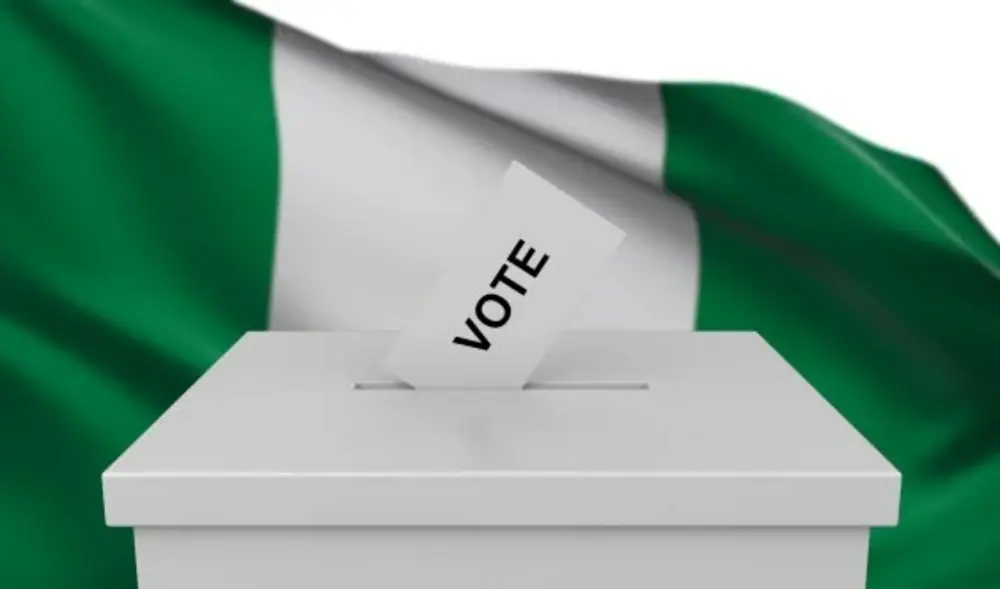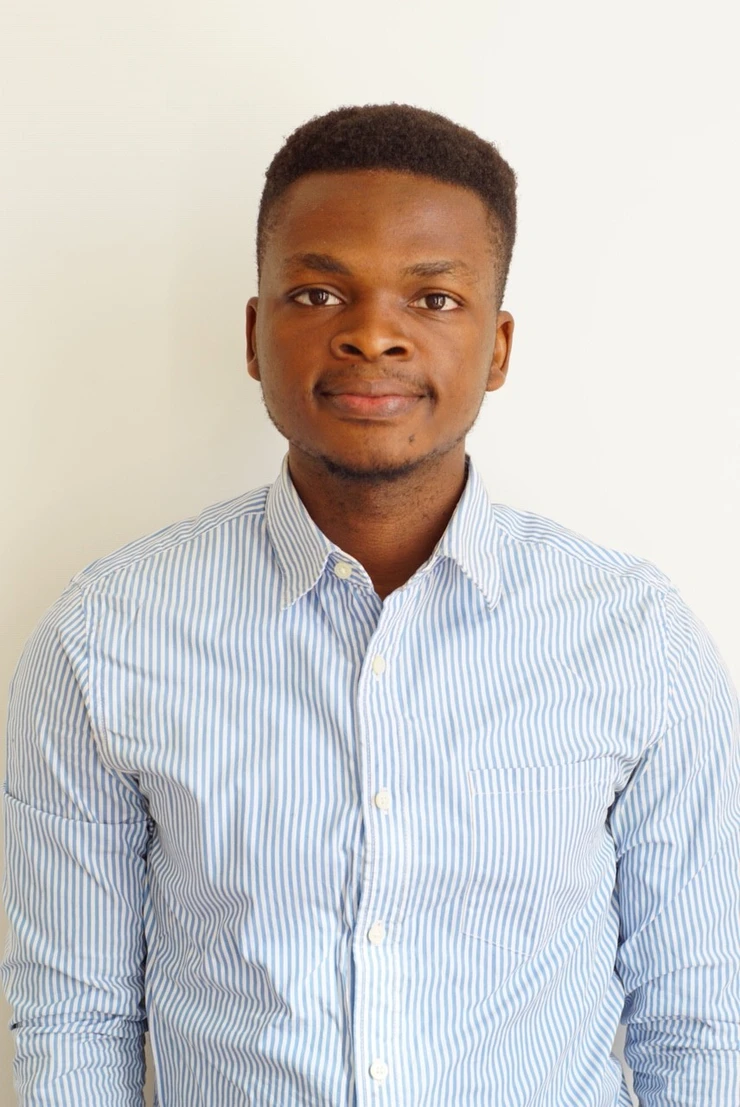2023 General Elections in Nigeria: Understanding the Stakes and Implications

The 2023 general elections present Nigerians with another opportunity to select a new president, governors, and members of the national assembly. The elections come at a time when national conversations are focused on growing insecurity, given the escalating rates of kidnappings and armed violence, and economic decline evidenced in unprecedented levels of inflation and unemployment.[1] Not lost in these conversations are the implications of the 2023 general elections for the stability and long-term future of the country. Nigeria´s presidential election garners significant attention given the enormous powers conferred on the president by the constitution and the responsibilities for converting political ideas into public policy.[2] As president Muhammadu Buhari steps down due to term limitation, who emerges as president, in terms of their ideas and structures for converting these ideas into public policy, is of interest to Nigerian voters.
Who are the Candidates?
Three candidates stand out of a group of eighteen in the forthcoming 2023 presidential election. Bola Ahmed Tinubu, a former governor of Lagos state from 1999 to 2007, and a former senator during the short-lived Third Republic is the candidate of the All Progressives Congress (APC). He is credited with kickstarting the reforms that made Lagos state become Nigeria´s most viable state.[3] Atiku Abubakar, a former vice-president from 1999 to 2007, is the flagbearer of the Peoples´ Democratic Party (PDP) and was responsible for the privatization of public assets during the Obasanjo administration.[4] Last, but not least, Peter Obi, a former governor of Anambra state from 2006 to 2014 is the nominee of the Labour Party (LP). Obi´s tenure as governor is remembered for improvements in education, healthcare, and accountability in the use of public finances.[5]
Even though public campaigns by presidential candidates and their parties commence on September 28, 2022.[6] The candidates have been using various private fora and social media platforms to give a hint of their plans and programs aimed at convincing Nigerians to vote for them during the elections. While there are cleavages along ethnic, religious, and class lines and these play a role in voting. Nigerians are exhausted by the myriad political, economic, and security problems confronting the country leading to increased calls for candidates to provide detailed and actionable plans for governance. The elections herald the promise of moving beyond business as usual given the shared urgency about Nigeria´s immediate and long-term future. Can these candidates articulate and deliver on their policy and development plans? Do they have a grasp of the front-burner issues affecting Nigeria? These are questions that must be addressed as the country heads to the polls in 2023.
What are the Issues?
To comprehend why the upcoming election is so crucial, it is important to dissect all the issues at stake and better understand the challenge in front of the future president. The election occurs amid a backdrop of numerous intricate, economic, security, and political challenges. Furthermore, the election results will have a significant impact on not only Nigeria but the entire West Africa, which is now experiencing political unrest due to recent coups in the region.
Starting with the economy, the government is experiencing a revenue crisis because of fluctuations in oil production and pricing as well as the payment of oil subsidies. Also, Nigeria's deteriorating debt management is now highly concerning with a startling 118.9 percent debt service/revenue ratio—the worst in the world according to the Economist Intelligence Unit (EUI).[7] This underscores the unsustainability of fiscal policies implemented by the current administration. Other worrying indicators include a 33.3 percent high unemployment rate with more than half of the population either unemployed or underemployed[8], and an 18.6 percent high inflation rate[9] as Nigerians continue to battle with surging food prices and decreasing wages. In this regard, the future President would be tasked with lowering these figures through economic diversification, cutting back on wasteful expenditure, combating public sector corruption, and managing Nigeria's debt profile.
Since the current administration entered power in 2015, the nation's level of security has worsened due to increased violence, criminality, banditry, and terrorism. The latest train attack between Abuja and Kaduna[10] and the kidnapping of schoolchildren[11], among other recent incidents, show how terrorist attacks from Boko-Haram, the Islamic State Africa Province (ISWAP), and bandits continue to damage lives and livelihoods in the North. Crime is also rampant throughout the South, and the number of homicides, armed robberies, and kidnappings for ransom has increased nationwide[12]. The multiple political splits and ethnic conflicts, which are manifest in the calls for a Biafran State and the Oduduwa Republic, intensify the already existing insecurity. These independence protests frequently turn violent, with protesters, security personnel, and common citizens all involved[13]. Therefore, the task of reforming the police force, combating terrorism and banditry, uniting the country, and handling the many agitations must be taken up by the next president.
There is also the issue of education, which has young people at its core. Public universities have been closed for more than six months due to the Academic Staff Union of Universities (ASUU) protracted strike over issues of insufficient financing[14]. Additionally, the nation is said to have the largest percentage of out-of-school children[15], highlighting the need for a president who recognizes the value of education for national development and is dedicated to resolving these problems.
Elections have implications, and as Nigerians continue to deal with the consequences of previous electoral choices, the time has come to make another critical decision towards a collective future. The outcome of the elections in 2023 will have a significant impact on both Nigeria's democracy and the aspirations of its young people for a better country.
Bibliography
[1] Ademola-Olateju, B. (2022, August 9) 2023: Nigeria´s make or break presidential election. Premium Times Nigeria. Retrieved September 11, 2022, from https://www.premiumtimesng.com/opinion/547851-2023-nigerias-make-or-break-presidential-election-by-bamidele-ademola-olateju.html
[2] Amadi, S. (2019, October 17) Executive order and presidential power in the Nigerian constitutional democracy. The Guardian (Nigeria). Retrieved September 13, 2022, from https://guardian.ng/features/executive-order-and-presidential-power-in-the-nigerian-constitutional-democracy/
[3] Fadoju, B. (2022, April 12) Leadership and Tinubu´s excellent footprints in Lagos. The Cable Nigeria. Retrieved September 13, 2022, from https://www.thecable.ng/leadership-and-tinubus-excellent-footprints-in-lagos
[4] Deutsch Welle (2022, May 29) Nigeria: Atiku Abubakar tapped as opposition presidential candidate. Retrieved September 13, 2022, from https://www.dw.com/en/nigeria-atiku-abubakar-tapped-as-opposition-presidential-candidate/a-61965880
[5] Ndubuisi, O. & Orjinmo, N. (2022, July 5) Peter Obi: The labour party candidate electrifying young Nigerians. British Broadcasting Corporation (Nigeria). Retrieved September 11, 2022, from https://www.bbc.com/news/world-africa-61865502
[6] Independent National Electoral Commission (2022) Timetable and schedule of activities for 2023 general elections. Abuja: INEC. Retrieved September 11, 2022, from https://inecnigeria.org/timetable-and-schedule-of-activities-for-2023-general-election/
[7] Ailemen, A. and Odifa, D. (2022, July 27). Nigeria’s debt service ratio now world’s worst. Business Day. Retrieved August 18, 2022, from https://businessday.ng/business-economy/article/nigerias-debt-service-ratio-now-worlds-worst-says-eiu/
[8]Olurounbi R. (2021, March 15). Nigeria’s unemployment rate rises to 33%, second highest on global list. Bloomberg. Retrieved August 18, 2022, from https://www.bloomberg.com/news/articles/2021-03-15/nigeria-unemployment-rate-rises-to-second-highest-on-global-list
[9] Olawoyin O. (2022, July 15). Nigeria’s inflation hits five-year high on surging food prices. Premium Times. Retrieved August 18, 2022, from https://www.premiumtimesng.com/business/business-news/542801-updated-nigerias-inflation-hits-five-year-high-on-surging-food-prices.html
[10] Ayitogo N. (2022, April 19). Kaduna train attack: Timeline of events three weeks after incident without decisive action by government. Premium Times. Retrieved August 18, 2022, from https://www.premiumtimesng.com/news/top-news/524593-kaduna-train-attack-timeline-of-events-three-weeks-after-incident-without-decisive-action-by-govt.html
[11] Akinwotu E. (2021, August 10). More than 200 children remain abducted amid kidnap epidemic. The Guardian. Retrieved August 18, 2022, from https://www.theguardian.com/world/2021/aug/10/more-than-200-children-remain-abducted-in-nigeria-amid-kidnap-epidemic
[12] Iniobong, I. (2021, November 21). Insecurity cases more in South than in North in September, October. Business Day. Retrieved August 18, 2022, from https://businessday.ng/news/article/insecurity-cases-more-in-south-than-in-north-in-september-october-report/
[13] Policy and Legal Advocacy Centre (2021). IPOB, ESN security clashes worsen in South-East. Retrieved August 18, 2022, from https://placng.org/Legist/ipob-esn-security-clashes-worsen-in-the-south-east/
[14] Ogunbamowo, E. (2022, August 17). ASUU: Strike not ending soon- FG brought nothing to latest meeting. The Cable. Retrieved August 18, 2022, from https://www.thecable.ng/asuu-strike-not-ending-soon-fg-brought-nothing-to-latest-meeting
[15] Daily Trust (2022, January 24). Nigeria has highest rate of out-of-school children – UNICEF. Retrieved August 18, 2022, from https://dailytrust.com/nigeria-records-worlds-highest-rate-of-out-of-school-children-unicef

Great Udochi is a recent alumnus of the Brandt School and a current doctoral fellow/researcher at the Swiss National Centre of Competence in Research (NCCR) for Migration and Mobility Studies. His research interests include diaspora politics, emigrant/emigration policies, and territorial politics.
~ The views represented in this blog post do not necessarily represent those of the Brandt School. ~